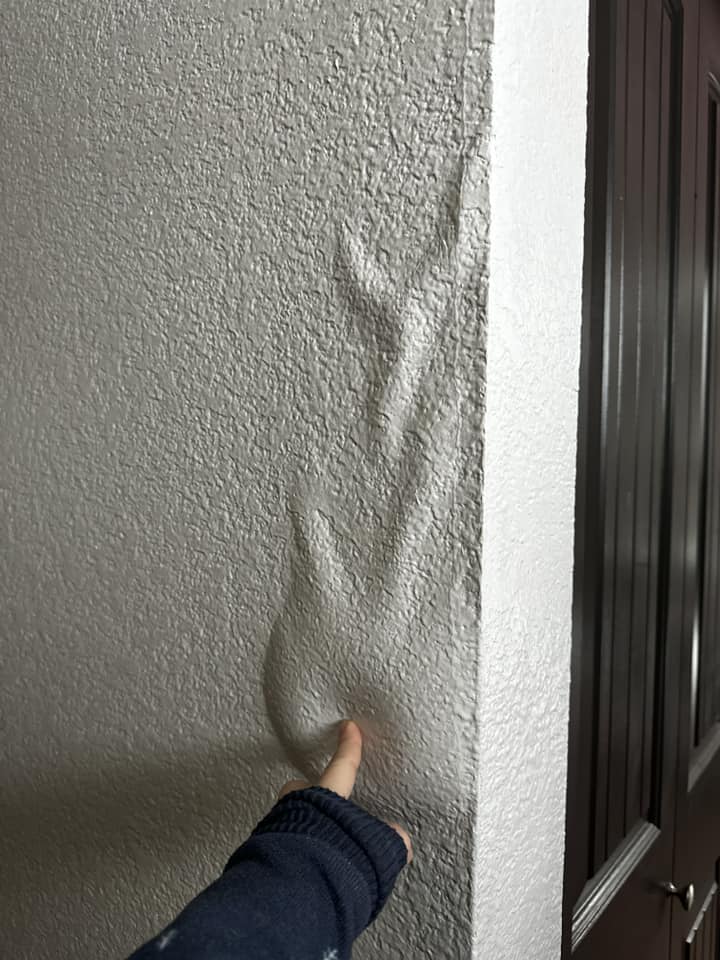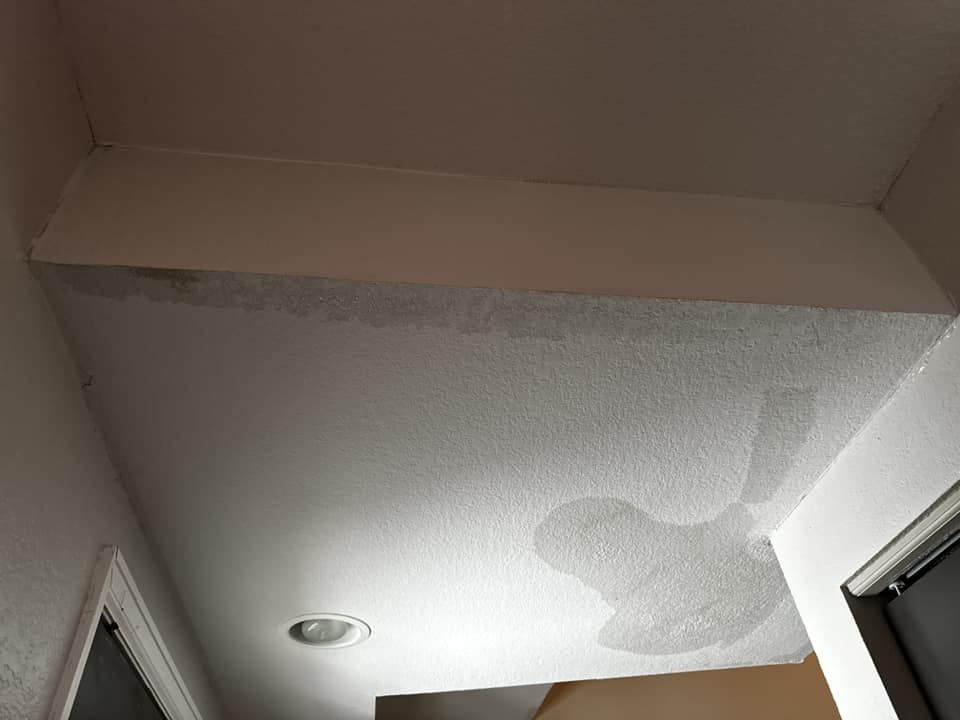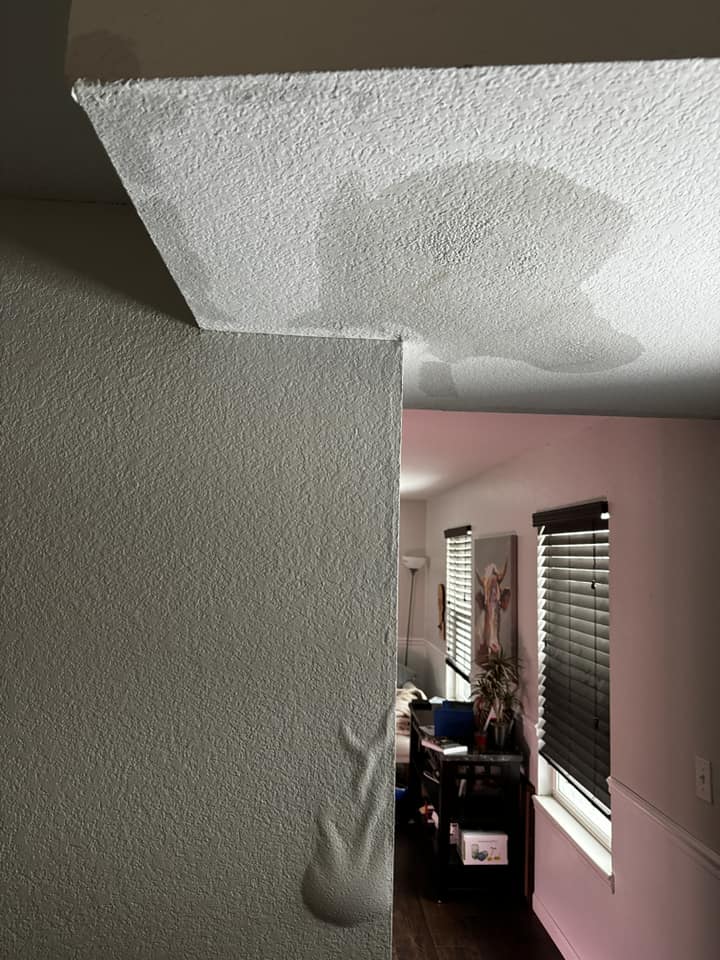How can I address water damage in my home caused by a hidden source, especially when I’m unable to get a plumber due to inclement weather?
8 months ago
Last Updated: November 1, 2024
I woke up this morning and noticed some water damage in the house, but I can’t seem to pinpoint where it’s coming from. Unfortunately, I don’t think I’ll be able to get a plumber out here until tomorrow because we’re snowed in. The bathroom and shower upstairs are the most likely culprits, but there doesn’t seem to be any visible signs of water damage in there. Do you have any suggestions or advice on what I should do in the meantime?



I think if the tub has been used recently, it’s probably the gasket on the overflow…
How have you managed to resist popping that bubble?
I found a leak in the water line to my toilet this morning, so I turned it off. The plumber is scheduled to come tomorrow, but I’m not sure what time.
Do you know if your AC drain line or drain pan is located near this area?
Try cutting out a section of the ceiling to have a look. It seems like it’s already damaged.
I think there might be a leak. You should inspect for any tiny cracks in your bathtub.
You might want to think about contacting a restoration company to come take a look at the damage (many offer free assessments).
While there are visible areas affected, it’s highly probable that water has seeped into places you can’t see. If the assessment indicates significant damage that warrants their services, you should probably contact your insurance provider for possible coverage. Ensuring that this is properly dried out and handled will help prevent any future problems.
Yes, Seth, I agree!
To prevent pipes from bursting, shut off the water main and open faucets to release any trapped water
I shut off the water supply to the toilet. How do I turn on the faucets?
Please switch them back on
Switched off the main valve. The pipes may not be the ones leaking. Definitely not the toilet, you can tell by that line
Hey , I never mentioned a leaking toilet. I was simply responding to their question about opening the faucets.
You’ll need to open it up to repair the leak and replace any wet insulation and sheetrock to prevent mold. It might just be a simple fix like an overflow gasket, as mentioned before, that you could handle on your own. Plus, doing the cutting yourself will save you money on labor costs for a plumber.
Check to see if the shower access panel is wet.
Locate the area of the ceiling with the most water damage, cut a hole big enough to fit your head and arms through, and then turn on the water to determine the source of the leak.
I remember a similar situation happening to us when I was bathing our dogs in the shower stall. Our shower stall only had a curtain and a 6-inch lip – and the air vent was less than 6 inches away from the shower. Water managed to get into the air vent and caused the ceiling to bubble in the kitchen below. It’s advisable to poke holes in the bubbled areas of the ceiling and let the water drain into buckets.
While I’m not saying this is the exact scenario here, it might be a possibility especially if there are no obvious leaks.
The ceiling is already in bad shape. Consider cutting it open to assess the damage.
Are you stuck in the snow? Have you noticed any ice dams on your roof? That could be causing water to sneak in under your shingles and leak down the walls.
It’s highly probable that ice dams are the cause.
‘t keep looking at it. What you really need is a roofer, not a plumber.
A lot of insurance companies use managed repair networks and offer mitigation services. You should reach out to your insurance provider. If the issue is related to plumbing, there might be coverage for mitigation and repair.
It’s important to be cautious when using a restoration company recommended by the insurance carrier. These companies work for the carrier, not the homeowner, so they may prioritize the carrier’s interests over necessary work. You have the right to choose your own restoration company according to your policy. Coverage for a claim is based on the loss, not the contractor. ‘t let the carrier pressure you.
The carrier I work with, offers water mitigation as a policy addition. The mitigation costs are covered separately and do not impact deductibles or policy limits. The water mitigation service is distinct from the reconstruction service. All policy forms that include water mitigation limit coverage for vendors not in the program. It’s recommended to inform the carrier of a loss before hiring another contractor.
Mentioned policies that mandate the use of program vendors, which is unfortunate when agents sell these policies to homeowners who may not be aware of this requirement until they experience a loss. The policy usually states that homeowners are responsible for minimizing further damage, so waiting for a program vendor to be assigned and respond could cause issues.
Make sure to shut off the water supply to that area. Unfortunately, you will need to cut open the wet spot to locate the source of the problem.
Try poking a hole in the ceiling to drain the excess water – Personally, I would remove the entire wet section of the ceiling – You won’t be able to salvage it and it will likely reveal the source of the water damage immediately.
I once had a similar issue where the seal in the bathtub drain was loose, causing water to leak down the side of the tub (behind the wall) and onto the floor below. This was especially noticeable when someone was taking a bath.
If you have water pooling on the ceiling, try poking a hole to prevent further damage
Maybe there’s an ice block on the roof
Go ahead and pop that bubble to release the pressure.
Go ahead and burst that bubble to release its contents
Keep your damage to a minimum
Why don’t you open up the ceiling? It needs to be removed anyway
Years back we experienced something like this- ice buildup on the roof
Could you check your water meter to see if anything is moving?